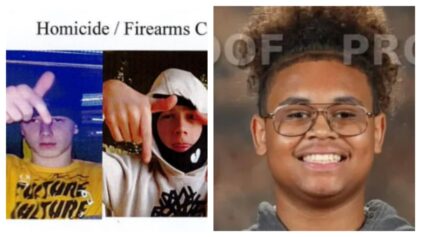
An investigation revealed that Layla Saad’s posts had not violated Facebook’s community rules after all (Photo by Noah Berger AP)
Social media giant Facebook is apologizing after it “mistakenly” removed a book quote from a Black blogger’s page for reportedly violating its community guidelines.
Last week, Facebook user Layla Saad shared a lengthy quote from author Catrice M. Jackson’s book titled, “The Becky Code: How to Deal with White Woman Violence by Amplifying Your Joy,” according to the Daily Beast. Saad, a Black woman writer who regularly blogs about race, diversity and her experience as a nonwhite woman, was outraged to learn that Facebook had later removed her post.
“Simply put, white women have mastered how to ignore, silence, discount, [and] violate black, brown, Native and indigenous women, just like white men do to them,” her posts featuring the quote began. “… And these same white men have also placed Becky on an untouchable pedestal deeming her superior to non-white women.”
Saad expressed her disappointment in a fiery follow-up post — but that was ultimately taken down, too.
“A white woman nonsense incident yesterday,” she wrote in the now deleted post.
“A racist experience for my daughter today. And on top of that, spiritual white women bringing their violent bypassing into my space to make me question if what happened actually happened, and questioning how can I change MY behavior, instead of white people changing theirs,” she added.
In both instances, the social media site argued that the statuses were not in line with its “Community Standards,” which state the platform reserves the right to delete any and all posts and/or accounts deemed “a genuine risk of physical harm or direct threats to public safety.” After further investigation, however, Facebook admitted they’d made a mistake.
“Sometimes we get things wrong,” a Facebook spokesperson told the Daily Beast, noting that most reports of problematic posts come from users themselves. “As soon as we were notified of the problem, we investigated and restored the post upon determining that it did not violate our Community Standards … We’ve informed Layla Saad of the restoration and apologized for the error.”
Critics who witnessed Saad’s squabble with the social media giant insist this isn’t the first time something like this has happened. According to the Daily Beast, writers and bloggers of color have blasted Facebook in the past for deleting their posts decrying racial injustice. The website reportedly drags its feet on removing posts with abusive and hate-filled speech from white users, however.
For instance, in August, Black activist and writer Ijeoma Oluo claimed she was banned from the platform after she was inundated with racist death threats for a joke she had made on Twitter. The hatred followed her on Facebook where she posted screenshots of the hate mail she was receiving in hopes that the platform would finally do something about it. They still did nothing, she said. Twitter was however responsive.
“When I am able to report threats and hate, they don’t do jack shit about it,” she wrote, showing a screenshot of a racist comment from another Facebook user that read, “Thanks to John Deere, Black Lives Haven’t Mattered for a Long Time.”
Oluo acknowledged that Facebook finally did take action — but not against her haters.
“What did they do? Did they suspend any of the people who threatened me? No. Did they take down Twitchy’s post that was sending hundreds of hate-filled commenters my way? No,” she wrote. “They suspended me for three days for posting screenshots of the abuse they have refused to do anything about.”
In Saad’s case, Facebook quietly reinstated her post but never gave a clear reason for its removal. In one of her last posts, the blogger told her nearly 3,000 followers that she was finally “out of Facebook jail” and had a lot to say, according to the Daily Beast.
“[But] not in this space where my words are not safe,” Saad wrote. “Where I am not safe.”


